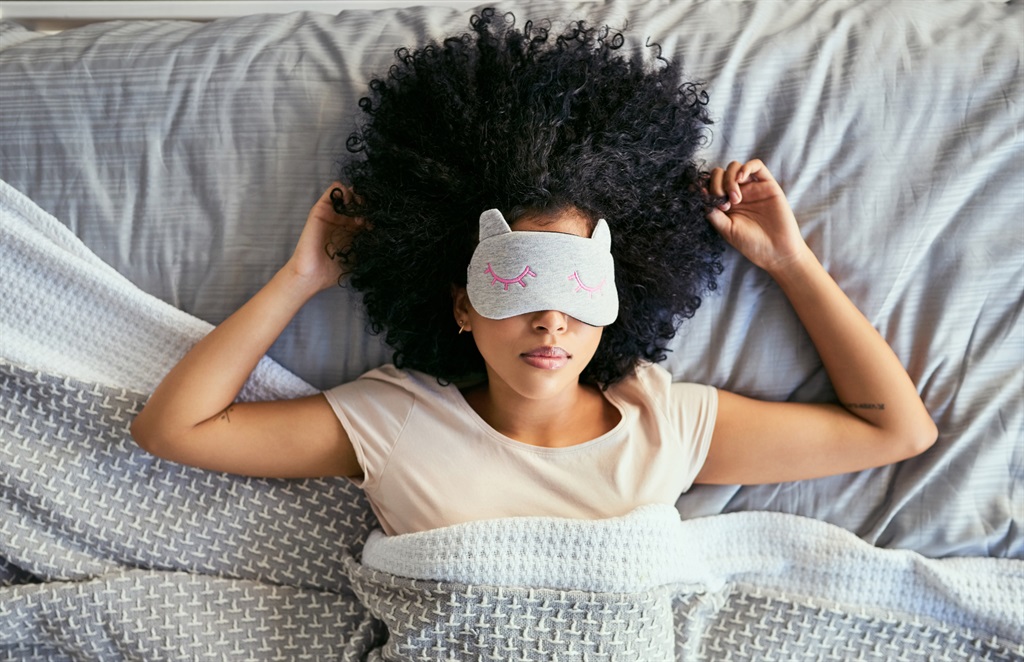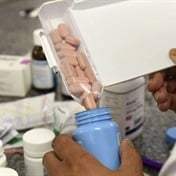
- Sleep is as essential to our health as food and water.
- It is important to a number of brain functions, including how nerve cells communicate with each other.
- We sleep for a third of our lives and there are many restorative processes going on during sleep that are needed to stay healthy.
Why do we usually sleep at night? What happens when we don't sleep? On World Sleep Day, Nadine Dreyer asks a group of experts to tell us more about this essential part of our lives.
Why do we need sleep and why do we sleep better at night?
We sleep for a third of our lives, yet it is only when we cannot sleep or when we experience poor-quality sleep that we really start noticing it.
During sleep, our muscle activity drops, our breathing slows down, and our heart rate and blood pressure decrease. At the same time, our brain actively clears toxins, which cause neurodegenerative diseases.
It also consolidates memories, wiping out "useless" ones during deep sleep, known as slow wave sleep.
All this allows us to start afresh the following day.
Our lives are organised around our sleep-wake schedule. As we're a diurnal species, our master clock in the brain, which maintains many of our 24-hour rhythms, schedules our period of activity with daylight, and our period of rest with the night.
In some other animals, like rodents, evolutionary pressure has pushed those species to become nocturnal, which allows them to scurry and feed outside the view of their diurnal (daytime) or crepuscular (twilight) predators.
READ | Up all night long? Experts offer advice on dealing with disrupted sleep
Not sleeping at the right time has been associated with poor health. Some of the side effects are poorer cognitive performance, lower energy and worse mental health.
There's also a higher risk of developing neurodegenerative diseases such as Alzheimer's and a higher risk of developing high blood pressure and diabetes.
After a poor night's sleep, we try to get on with our lives but research has shown this is not so easy. During the Covid-19 pandemic and the strictest lockdown, South Africans rated their sleep quality as poorer, with more insomnia symptoms. These were both, in turn, associated with worse levels of depression and anxiety.
What happens when we don't sleep?
Sleep is a state of vulnerability where a "rest and digest" state dominates over the "fight and flight" state when we are awake.
Our early sleep "scans" the environment before allowing us to dive into deeper stages of sleep.
When a rupture in this consolidated bout of sleep happens, we will start complaining "I haven’t slept enough" or "I slept really badly last night".
Such ruptures include those induced by specific sleep disorders like sleep apnoea or insomnia.
Sleep apnoea leads to unconscious sleep interruptions due to upper airways obstruction and can lead to hypertension and increased risk of diabetes.
Research in rural Mpumalanga province in South Africa found one out of three older adults had moderate to severe sleep apnoea and this was associated with a higher risk of cardiovascular disease. Yet, there is no treatment in the public health system for this common sleep disorder.
Certain situations disrupt sleep: parents tending to their young children, doctors being awake while on call, loud generator noises during night-time electricity cuts, mosquitoes, or worse, gunshots or sounds of violence waking us up from our slumber, signalling danger.
READ | 'Battle between death and insolvency': The reality for SA patients with rare diseases
Sleep health inequity in South Africa is also driven by socioeconomic status.
A recent study on sleep in men and women living in the urban township of Khayelitsha in South Africa's Western Cape province showed that poor sleep quality was associated with fear of falling asleep in a violent environment. Sleep was disturbed by strange noises, fear of attacks and dreams about past traumatic experiences.
Electronic devices make it difficult to sleep. Why?
Even though our biology is meant to make us sleep at night, several societal and technological changes have progressively decreased our sleep opportunities.
Our sleep timing is controlled by our master circadian clock. This clock is exquisitely sensitive to light, so exposure to bright light and blue light, such as that emitted from electronic devices such as smartphones, shifts our bedtime to a later time.
In our recently published study of adolescent sleep in Nigeria, adolescents in urban areas slept less and sleep quality was worse.
Sleep duration was shorter due to bedtimes being later, but waking times in the morning were similar to those of adolescents in rural areas. The use of electronic devices at night by urban Nigerian adolescents was associated with shorter sleep duration.
This is one example of a growing body of research that highlights the negative consequences of nocturnal tech use on sleep, even in African societies.
What are key habits to help people sleep better?
The most important habit is to take sleep as seriously as a healthy diet and regular exercise.
We advise the following:
- Keep regular wake times and bedtimes. This helps us sleep at the best time with respect to our master clock’s rhythm. This in turn helps ensure a consolidated bout of sleep.
- Aim for an average of 7 to 9 hours of sleep each night.
- Avoid watching screens one hour before normal bedtime. If this is unavoidable, choose the lowest brightness and add the orange night screen setting. Rather read a book under a bedside light.
- Get outdoor light during the day to strengthen the master clock’s circadian (near 24-hour) rhythm.
- Do some form of physical activity once a day. This helps build sleep pressure and also strengthens the master clock’s rhythms.
- Avoid alcohol before bedtime as this is associated with disrupted sleep.
- Avoid caffeine and stimulants after noon.
- Try to sleep in a quiet, cool and dark or dimly lit environment.
For more information please visit the South African Society for Sleep and Health.




 Publications
Publications
 Partners
Partners























